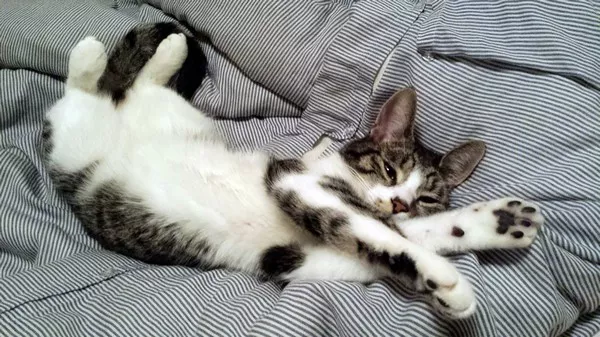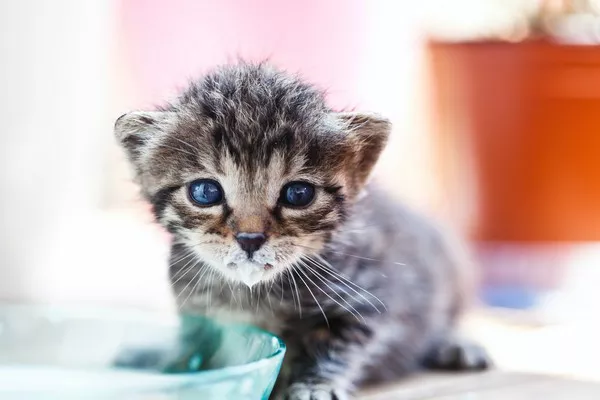Cats have been cherished companions for thousands of years, not only for their playful and loving nature but also for the various health benefits they provide to their owners. Numerous studies have shown that having a cat can positively impact both physical and mental health. In this article, we will explore the many ways in which having a cat can enhance your overall well-being.
Physical Health Benefits
Lower Risk of Heart Disease
One of the most significant health benefits of having a cat is the potential reduction in the risk of heart disease. Studies have shown that cat owners have a lower risk of dying from heart attacks and other cardiovascular diseases. The calming effect of having a cat can lead to lower stress levels, which in turn reduces the strain on the heart.
Reduced Blood Pressure
Interacting with a cat, such as petting or playing, can have a calming effect, which can help to lower blood pressure. The act of stroking a cat can release endorphins, which are natural stress-relievers. This can be particularly beneficial for people with hypertension.
Decreased Cholesterol and Triglyceride Levels
Owning a cat has been associated with lower levels of cholesterol and triglycerides. These are two key factors in the development of heart disease. The companionship of a cat can encourage a more active lifestyle and reduce stress, contributing to healthier lipid levels.
Improved Immune System
Having a cat can also boost your immune system. The presence of a pet has been shown to increase levels of immunoglobulin A, an antibody that plays a crucial role in the immune function of mucous membranes. This means that cat owners may have a stronger defense against common infections and illnesses.
Better Respiratory Health
Contrary to popular belief, having a cat can actually improve respiratory health, particularly in children. Growing up with a cat can help to develop a child’s immune system and decrease the risk of allergies and asthma later in life. Exposure to cat dander in early childhood can help build a tolerance to allergens.
Mental Health Benefits
Reduced Stress and Anxiety
Spending time with a cat can significantly reduce stress and anxiety levels. The simple act of petting a cat can release oxytocin, a hormone that promotes feelings of relaxation and bonding. Cats also have a soothing presence, and their purring has been shown to have a calming effect on the human nervous system.
Decreased Feelings of Loneliness
Cats provide companionship and can help alleviate feelings of loneliness. They offer unconditional love and are always there to provide comfort. For people who live alone, a cat can be a source of constant companionship, reducing the sense of isolation.
Improved Mood and Mental Well-being
The presence of a cat can have a positive impact on overall mood and mental well-being. Interacting with a cat can increase the production of serotonin, a neurotransmitter that contributes to feelings of happiness and well-being. Cats can also provide a sense of purpose and routine, which can be particularly beneficial for individuals dealing with depression or anxiety.
Enhanced Social Interaction
Having a cat can also lead to increased social interaction. Cat owners often connect with other pet owners, either in person or through online communities. These interactions can lead to the development of new friendships and support networks, which are essential for mental health.
Emotional Benefits
Sense of Purpose and Responsibility
Caring for a cat can provide a sense of purpose and responsibility. Feeding, grooming, and playing with a cat require a commitment that can help structure your day and give you a sense of accomplishment. This sense of purpose can be particularly beneficial for people who are retired or live alone.
Emotional Support
Cats are known for their ability to sense their owner’s emotions and provide comfort during difficult times. They can offer a non-judgmental presence and emotional support, which can be incredibly comforting. The bond between a cat and its owner can be a significant source of emotional stability.
Reduced Symptoms of PTSD
For individuals suffering from Post-Traumatic Stress Disorder (PTSD), having a cat can be incredibly therapeutic. The companionship and unconditional love provided by a cat can help to reduce symptoms of PTSD, such as anxiety, depression, and flashbacks. The routine care of a pet can also provide a grounding and stabilizing effect.
See Also: Is It Unhealthy to Keep a Cat Indoors?
Physical Activity and Exercise
Encouragement of Physical Activity
While cats may not require the same level of exercise as dogs, they still encourage physical activity. Playing with your cat using toys or engaging in interactive games can help you stay active. This increased activity can lead to better overall physical health and fitness.
Improved Flexibility and Coordination
Interacting with a cat, such as reaching for toys or engaging in playful activities, can help improve flexibility and coordination. This can be particularly beneficial for older adults, helping to maintain mobility and reduce the risk of falls.
Weight Management
Having a cat can indirectly contribute to weight management. The stress reduction and improved mood associated with cat ownership can lead to healthier eating habits and a more active lifestyle. Additionally, the responsibility of caring for a cat can encourage a routine that includes regular physical activity.
Benefits for Children
Development of Empathy and Compassion
Growing up with a cat can teach children important life skills, such as empathy and compassion. Caring for a pet requires understanding and responding to the cat’s needs, which can help children develop a sense of empathy towards animals and other people.
Improved Social Skills
Children who grow up with cats often develop better social skills. The responsibility of caring for a pet can improve communication and teamwork within the family. Additionally, having a cat can provide a topic of conversation and a way to connect with peers, enhancing social interactions.
Enhanced Learning and Cognitive Development
Interacting with a cat can stimulate a child’s cognitive development. Reading to a pet, for example, can improve reading skills and boost confidence. The presence of a cat can also provide a calming effect, helping children focus and learn more effectively.
Benefits for the Elderly
Companionship and Reduced Loneliness
For elderly individuals, having a cat can provide essential companionship and reduce feelings of loneliness. Cats are relatively low-maintenance pets, making them suitable for older adults who may have limited mobility or energy. The presence of a cat can provide comfort and a sense of purpose.
Improved Mental Health
The mental health benefits of having a cat are particularly significant for the elderly. Reduced stress, anxiety, and depression can lead to an overall improvement in quality of life. The bond between an elderly person and their cat can provide emotional stability and support.
Encouragement of Routine and Activity
Caring for a cat encourages a daily routine, which can be beneficial for elderly individuals. The responsibility of feeding, grooming, and playing with a cat can provide structure and a sense of accomplishment. This routine can also encourage physical activity, helping to maintain mobility and overall health.
Therapeutic Benefits
Animal-Assisted Therapy
Cats are increasingly being used in animal-assisted therapy programs. These programs leverage the therapeutic benefits of animals to improve physical, emotional, and mental health. Cats, with their calm and soothing presence, are particularly effective in providing comfort and reducing stress in various settings, including hospitals, nursing homes, and rehabilitation centers.
Support for Mental Health Disorders
Cats can provide valuable support for individuals with mental health disorders, such as anxiety, depression, and PTSD. The companionship and unconditional love offered by a cat can provide emotional stability and reduce symptoms. The routine care of a pet can also offer a sense of purpose and grounding.
Purring as a Healing Mechanism
A cat’s purr is not only soothing but also has potential healing properties. Research suggests that the frequency of a cat’s purr (between 25 and 150 Hertz) can promote healing in bones and tissues. This purring frequency can reduce pain, inflammation, and swelling, providing a natural form of therapy.
Conclusion
Having a cat offers numerous health benefits, from improved physical health to enhanced mental and emotional well-being. The companionship, love, and joy that a cat brings can significantly improve the quality of life for individuals of all ages. Whether it’s lowering the risk of heart disease, reducing stress and anxiety, or providing emotional support, the positive impact of having a cat is undeniable. If you’re considering adding a furry friend to your life, the health benefits alone make it a decision worth exploring. Always remember to provide your cat with proper care, love, and attention to ensure a mutually rewarding relationship.























